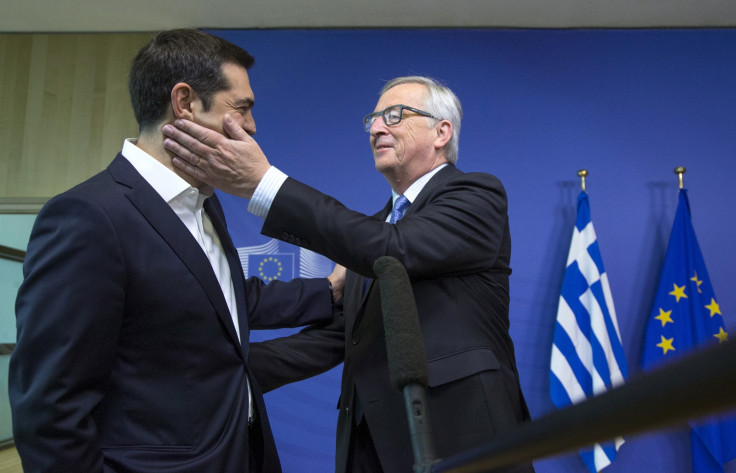Grexit: Alexis Tsipras slams creditors and suggests Germany and IMF gunning for loan default

Alexis Tsipras has hit out at his country's creditors for not accepting his government's latest reform proposals, suggesting that Germany was trying to push Greece out of the euro.
As EU finance ministers gathered in Brussels to secure a cash-for-reforms deal for Greece, one official painted a very gloomy picture, telling Reuters the sides were "still stuck at the same red lines".
The talks broke up after little more than an hour on 24 June because no deal was ready for them to discuss.
"I get the impression that we haven't come much further than we were on 22 June. But we are just beginning, then we will see. In any case, the preparations that were made do not make one optimistic that we will find a solution [on 25 June]
"We are prepared to work all night, but we had nothing real to work with," one eurozone official told Reuters. "The loss of trust is becoming extreme ... It is hard to see how we can go on."
Talks will resume on 25 June, but hopes for a deal seem to have diminished.
German Finance Minister Wolfgang Schäuble said a deal was not close. "I get the impression that we haven't come much further than we were on Monday," he said. "But we are just beginning, then we will see. In any case, the preparations that were made do not make one optimistic that we will find a solution [on 25 June]. "
Greece must repay €1.6bn (£1.1bn) to the International Monetary Fund (IMF) by 30 June or face default and possible exit from the EU – a Grexit.
The Greek Prime Minister complained that his country was being put through the wringer, saying that other countries in a similar situation had not faced similar crippling measures.
Tweeting his anger, Tsipras wrote: "The repeated rejection of equivalent measures by certain institutions never occurred before – neither in Ireland nor Portugal. This odd stance seems to indicate that either there is no interest in an agreement or that special interests are being backed."
The repeated rejection of equivalent measures by certain institutions never occurred before-neither in Ireland nor Portugal. #Greece (1/2)
— Alexis Tsipras (@tsipras_eu) June 24, 2015This odd stance seems to indicate that either there is no interest in an agreement or that special interests are being backed. #Greece (2/2)
— Alexis Tsipras (@tsipras_eu) June 24, 2015Another official quoted Tsipras in The Times as saying: "This strange attitude can only mean one of two things: either they do not want an agreement or they are serving specific interests in Greece."
In Athens, State Minister Alekos Flabouraris, considered close to Tsipras, was quoted by Reueuters as telling the ruling Syriza party that the creditors' revised list of demands was "absurd".
Senior German politicians told The Times that talks had reached a deadlock because of the IMF's concerns that the Greek plans, drafted with the help of the European Commission, were unworkable.
"The IMF is unhappy. There is no progress," a senior official said.
IMF chief Christine Lagarde, who attended the meetings in Brussels, detailed her objection to Greek proposals centred on higher taxes to plug a budget gap.
"You can't build a programme just on the promise of improved tax collection, as we have heard for the past five years with very little result," she told French magazine Challenges.
This strange attitude can only mean one of two things: either they do not want an agreement or they are serving specific interests in Greece
The Greek stance came after deep divisions between the eurozone and the International Monetary Fund opened up overnight, jeopardising negotiations.
Ingeborg Grässle, a senior German MEP and ally of Angela Merkel, the chancellor, accused European Commission president Jean-Claude Juncker of siding with Greece. "The European Commission has abandoned its neutral role. It is in the Greek camp. I have confidence in the IMF," she told Belgium's RTL radio yesterday. "It has experience and is hard enough to ensure promises are met."
With the situation in Greek banks becoming more dire by the day – billions of euros have been withdrawn by savers - the European Central Bank increased additional emergency funding to stave off fears of a bank run.
Only once agreement is reached will creditors unlock the final €7.2bn tranche of bailout funds.
If there is no deal, €10.9bn worth of funding to recapitalise the country's banks will also be lost.
© Copyright IBTimes 2025. All rights reserved.






















